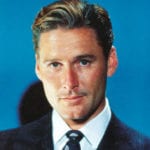 Mysteries
Mysteries  Mysteries
Mysteries  History
History 10 Surprising Stories About the Texas Rangers
 Humans
Humans 10 Philosophers Who Were Driven Mad by Their Own Theories
 Miscellaneous
Miscellaneous 10 Video-Game-Worthy Weapons and Armors from History
 Weird Stuff
Weird Stuff 10 Psychics Who Accurately Predicted Wartime Events
 The Arts
The Arts 10 Pieces of Art Inspired by a Broken Heart
 Health
Health 10 Science Fiction-Sounding New Medical Treatments
 History
History 10 Surprising Facts About the Father of Submarine Warfare
 Space
Space Ten Astonishing New Insights into Alien Worlds
 Weird Stuff
Weird Stuff 10 Bizarre Summer Solstice Rituals Still Practiced Today
 Mysteries
Mysteries Top 10 Haunting Facts About the Ghost Ship MV Alta
 History
History 10 Surprising Stories About the Texas Rangers
 Humans
Humans 10 Philosophers Who Were Driven Mad by Their Own Theories
Who's Behind Listverse?

Jamie Frater
Head Editor
Jamie founded Listverse due to an insatiable desire to share fascinating, obscure, and bizarre facts. He has been a guest speaker on numerous national radio and television stations and is a five time published author.
More About Us Miscellaneous
Miscellaneous 10 Video-Game-Worthy Weapons and Armors from History
 Weird Stuff
Weird Stuff 10 Psychics Who Accurately Predicted Wartime Events
 The Arts
The Arts 10 Pieces of Art Inspired by a Broken Heart
 Health
Health 10 Science Fiction-Sounding New Medical Treatments
 History
History 10 Surprising Facts About the Father of Submarine Warfare
 Space
Space Ten Astonishing New Insights into Alien Worlds
 Weird Stuff
Weird Stuff 10 Bizarre Summer Solstice Rituals Still Practiced Today
10 Outrageous McDonald’s Scandals
McDonald’s has over 36,000 locations around the globe, which are estimated to serve over 69 million customers daily. That’s the second-highest number of locations for a fast-food chain in the world. (Subway takes the top spot.)
At that scale, it’s no wonder there have been so many controversies and scandals. Most people have heard of the hot coffee incident in which 79-year-old Stella Liebeck was severely burned by the fast-food chain’s scalding coffee. She was hospitalized for eight days and awarded millions by a jury. Ultimately, McDonald’s settled the lawsuit with Liebeck privately.
Although that’s one of the most publicized cases, McDonald’s has faced other outrageous scandals, like the ones detailed below.
10 The McDonald’s Virginia Racism Lawsuit
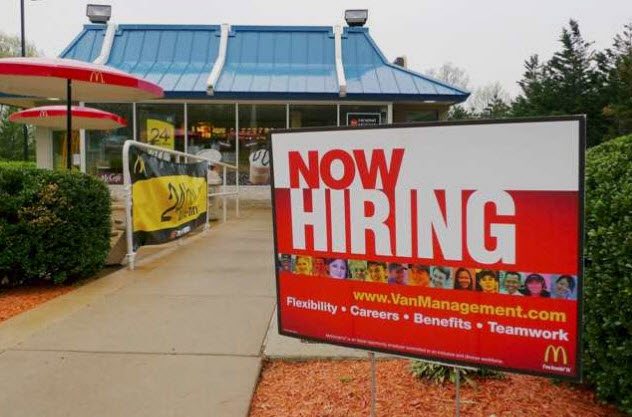
In 2015, several former McDonald’s employees based in Virginia launched a civil rights lawsuit against the company. They alleged that after Michael Simon had become their boss and owner of three McDonald’s restaurants, he made a conscious decision to reduce the number of ethnic minorities he employed.
It was claimed that supervisors had openly stated that there were “too many black people in the store,” leading to an influx of white people being hired. This was followed two months later by the mass firing of 15 black employees. The fired workers also stated that they had attempted to contact the corporate offices of McDonald’s to complain about their treatment, but they received little to no response.[1]
The lawsuit has broader implications for McDonald’s as the argument is based around how responsible the company should be for the actions of its franchisees. If McDonald’s is classified as a joint employer with its franchisees, then the responsibilities of McDonald’s as the franchisor increase significantly. However, that debate is ongoing.
9 The McLibel Case
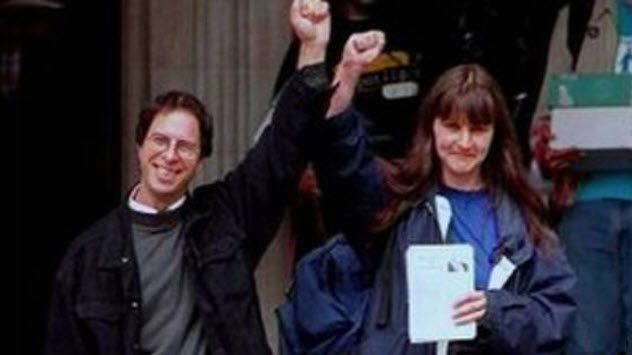
Helen Steel, David Morris, and several accomplices released a McDonald’s fact sheet around London that was deeply negative in tone. In 1990, McDonald’s launched a lawsuit against them, claiming that the document was libelous.
It can be very time-consuming and expensive to defend against a defamation lawsuit in England. Perhaps with this in mind, Steel and Morris’s accomplices decided to take McDonald’s up on their offer to drop the charges under the condition that the accomplices apologize. On the other hand, Steel and Morris flatly refused.
The resulting legal trial became the subject of much media attention, being aggrandized as a modern David versus Goliath clash. It cost the duo nearly £30,000 in legal fees. McDonald’s spent tens of millions.
Ultimately, the judge ruled in favor of McDonald’s. Steel and Morris were ordered to pay £60,000 in damages, which was later reduced to £40,000 by the Court of Appeal.[2]
Steel and Morris then filed a case with the European Court of Human Rights (ECHR), criticizing the UK government’s practices for libel cases. The ECHR awarded the duo £57,000 in compensation, to be paid by the government.
8 The McDonald’s Strip Search Scam
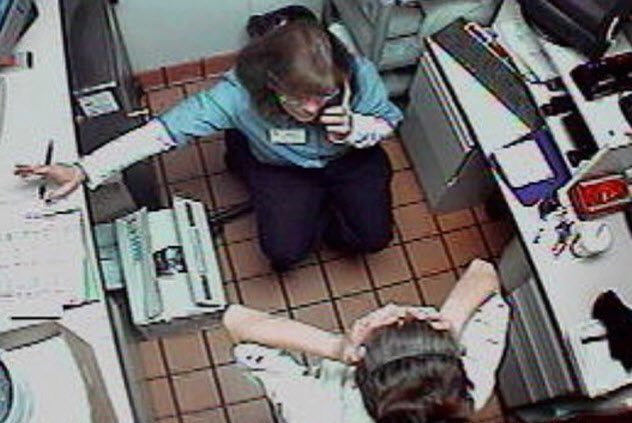
It’s often important to question authority. An excellent example of the dangers of idle compliance is the McDonald’s strip search scam.
David Stewart had been prank calling fast-food restaurants and grocery stores for around a decade. Every time, his routine was similar. He was a cop, there was a thief in the establishment, and he needed whoever answered the phone to apprehend the thief and conduct a strip search.
His final prank occurred on April 9, 2004, and targeted a McDonald’s in Mount Washington, Kentucky. Donna Summers answered the phone and received a description of a thief that matched employee Louise Ogborn, who was currently working her shift. Summers was ordered by the prank caller to remove Ogborn’s clothes and search her.[3]
The ordeal lasted much longer than any of Stewart’s previous prank phone calls, resulting in Summers having to tell him after an hour that she was needed at the store counter. Stewart then instructed her to get someone she trusted to take over.
Summers phoned her boyfriend, Walter Nix, who followed the prank caller’s directions for two hours. The requests were bizarre and horrific, yet Nix complied. In those two hours, Nix raped Ogborn in a variety of ways at the request of the prank caller. When Summers returned, the prank caller finally gave permission for Nix to leave. At that point, Nix called a friend, stating, “I have done something terribly bad.”
Summers became increasingly suspicious of the whole thing. She finally realized it was a prank when she called her manager, who confirmed that he had not been in contact with any police officer.
In the aftermath, Ogborn was awarded $5 million dollars in punitive damages and $1.1 million in damages and expenses. Summers also received $1.1 million on the grounds that McDonald’s had previous knowledge of similar pranks that had happened at other branches. They had failed to warn their employees of the possibility of receiving a similar phone call.
7 French Fry Controversy Results In $10 Million Payout To Vegetarians
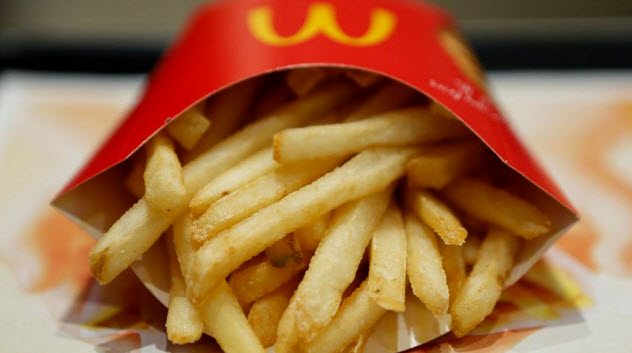
The manner in which McDonald’s prepared their french fries resulted in a slew of lawsuits throughout the 1990s. Many vegetarians felt tricked into believing that the fries were an entirely meat-free product.
A 1993 letter from McDonald’s, which was used in one of the lawsuits, reassured a customer that the product was “cooked in 100 per cent vegetable oil.” Indeed, vegetable oil was used. However, beef seasoning had also been used, making the fries nonvegetarian.
The lawsuits were finished up in 2002. McDonald’s issued an apology and agreed to pay $10 million to various vegetarian and religious groups.
There have been a number of other high-profile cases relating to misrepresentations by McDonald’s as to what’s in their food. In one instance, a Muslim family in Alabama alleged that pieces of bacon were deliberately and maliciously placed in their McChicken sandwiches. McDonald’s believes that it was an honest accident. However, it has led to a legal case.[4]
6 Mayor McCheese Is A Rip-Off Of H.R. Pufnstuf
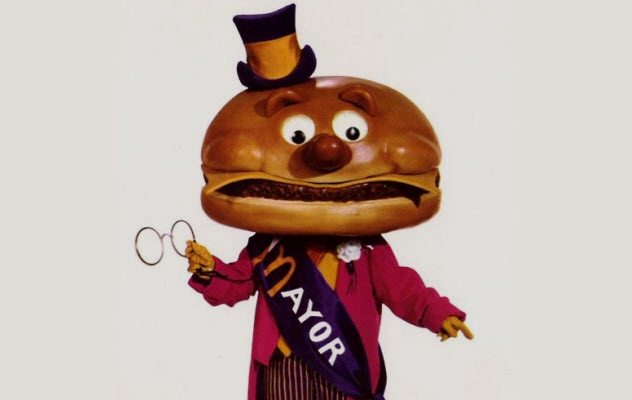
You may be familiar with the characters of McDonaldland, such as Grimace, the Hamburglar, Officer Big Mac, and Mayor McCheese. That last character was forcefully discontinued in 1985 following successful legal action taken for copyright infringement.
McCheese was a rip-off of H.R. Pufnstuf, who was also a mayor and bears a striking physical similarity to McCheese. Also, H.R. Pufnstuf had first appeared in his eponymous children’s television show in 1969. McDonald’s had launched the McDonaldland advertising campaign two years later.
The similarities were not limited to Pufnstuf and McCheese, either. The entire concept of McDonaldland was weird and psychedelic, anthropomorphizing normally mundane bits of the environment as if we had a secret peephole into Ronald McDonald’s brain as he experienced an acid trip. That does sound pretty unique, right? Well, that’s a large chunk of why the copyright infringement was so flagrant. It was unique—when done in the H.R. Pufnstuf show.
McDonald’s attempted to argue that minute details, such as clothing differentiation between Pufnstuf and McCheese, made the characters different. The jury in the court case disagreed, specifically stating, “We do not believe that the ordinary reasonable person, let alone a child, viewing these works will even notice that Pufnstuf is wearing a cummerbund while Mayor McCheese is wearing a diplomat’s sash.”
After a relatively paltry initial payout of $50,000, Pufnstuf’s creators took the case to appeals court. There, the amount to be paid was raised to more than $1,000,000.[5]
5 Aggressive Corporate Ownership Of ‘Mc’
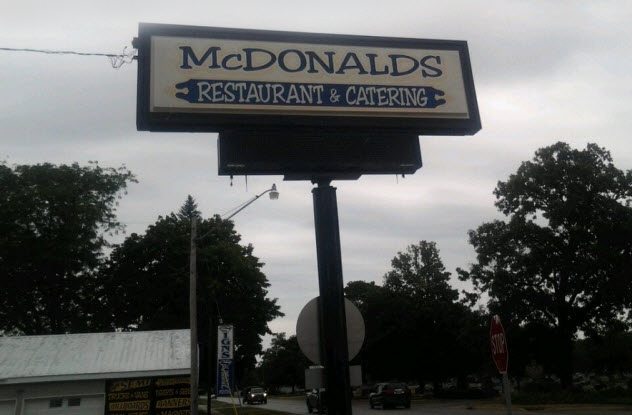
McDonald’s is obsessed with eliminating as much use of the “Mc” prefix in other people’s businesses as possible. This stretches as far as people with the legal family name of McDonald, even those that predate McDonald’s emerging as a major global brand.
One rare instance where McDonald’s lost a legal battle was when they took on McDonald’s Family Restaurant in Fairbury, Illinois. It was opened in 1956 by a man called Ronald McDonald. A purely coincidental name and one that Mr. McDonald argued that he had every right to use to promote his business. Although McDonald’s has routinely disagreed, the family restaurant has managed to continue operating.
When McDonald’s attempted to open a restaurant in Fairbury in the 1990s, it was ultimately rejected by the locals in favor of the homegrown business. Ronald McDonald’s restaurant had been forced to take the possessive “s” off their stationery in menus when the McDonald’s location was in town. Following its closure, they also regained possession of their “s.”[6]
4 McDonald’s Ripped Off Viz’s Top Tips Nearly Word For Word
 Viz is a humorous, adult-themed comic published in England. One of its most popular features is called Top Tips. It offers readers a way to save some money through ingenious thrift. For instance, in the May 1989 issue, Viz suggested, “Save a fortune on laundry bills. Give your dirty shirts to Oxfam. They will wash and iron them, and then you can buy them back for 50p.”
Viz is a humorous, adult-themed comic published in England. One of its most popular features is called Top Tips. It offers readers a way to save some money through ingenious thrift. For instance, in the May 1989 issue, Viz suggested, “Save a fortune on laundry bills. Give your dirty shirts to Oxfam. They will wash and iron them, and then you can buy them back for 50p.”
In 1996, McDonald’s launched a new advertising campaign that offered people valuable advice on how to save money. One ad stated, “Save a fortune on laundry bills. Give your dirty shirts to a secondhand shop. They’ll wash and iron them, and then you can buy them back for 50p.” It was almost word for word what was published in Viz seven years earlier. The campaign was littered with other shamefully similar pieces of advice.
Readers of Viz believed that the magazine had licensed their work to McDonald’s. However, Viz’s publisher said, “McDonald’s didn’t ask our permission or approach us at all.”
McDonald’s also denied having contacted Viz. A spokeswoman defensively said, “They are suggesting we have perhaps taken the idea from Top Tips. We say we haven’t. Our campaign is called ‘Money Saving Tips.’ ”[7] Clever stuff.
The creators of Viz launched a legal case against McDonald’s which was settled out of court for an undisclosed sum. All damages were reportedly donated to the Comic Relief charity.
3 McDonald’s Drive-Through Intercom Hacks
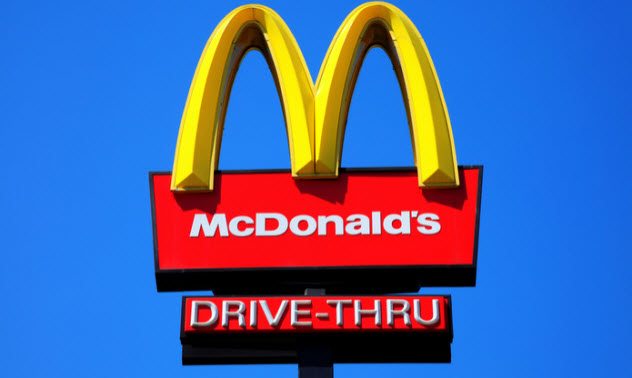
On December 4, 2016, a McDonald’s restaurant in New Bern, North Carolina, got hacked. More specifically, the hacker targeted the drive-through intercom system of the restaurant to deliver his own messages to customers.
A video of the incident was uploaded to YouTube by one of the drive-through victims. In it, the excited hacker can be heard saying, “You know I’m actually on the toilet right now, and I’m just going to serve you your food. I’m not even going to wash my hands. I’m trying to get some special sauce out right now. You know what, just pull forward because I’m going to give you whatever the f—k I feel like giving you.” At that point, he seemed to run out of things to say and piped through some prototypical porn audio.
The prankster had gained access to the intercom system by somehow figuring out its wireless frequency.[8] Bill Purcell, the owner of the restaurant, stated, “We are taking steps to prevent this isolated incident from happening again. As local owners, our biggest priority is our customers and community, and we want to ensure that every experience at our restaurant is a positive one.”
There have been no further reports of intercom hacks, so we’re guessing Purcell successfully remedied the situation.
2 Blind People Are Refused Service At The Company’s Drive-Throughs
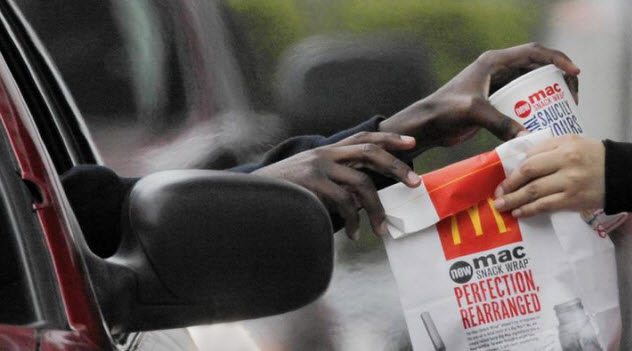
Many McDonald’s restaurants stay open throughout the night. A common practice for these locations is to cut costs by only operating the drive-throughs. This means that nondrivers are excluded from getting their McDonald’s fill.
Scott Magee is legally blind. When he attempted to use the drive-through on foot, he was refused service. According to Magee, he was also laughed at in the process. Magee began legal action against McDonald’s in 2016, claiming that the policy goes against the Americans with Disabilities Act and therefore violates federal equal access requirements.
His lawyer, Roberto Costales, has stated, “This is something simple that can cause a lot of hurt to disabled people, especially if, like Scott, they cannot cook for themselves.” Costales also suggested that the problem could be solved by allowing disabled people to ring the McDonald’s restaurant from outside and have the food brought to them.[9]
McDonald’s has attempted to get the case thrown out. However, in February 2017, a federal judge ruled that Magee had valid grounds to sue.
1 The San Ysidro McDonald’s Massacre
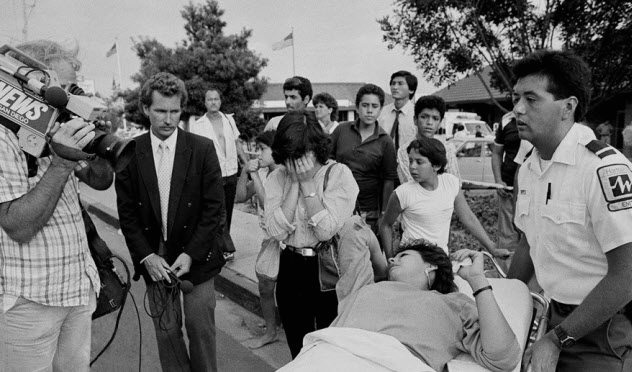
In July 1984, James Huberty was suffering from severe mental health problems. He had called a mental health clinic to request an initial appointment and was told that he should expect a phone call within the next few hours. His wife said that James waited by the phone, but the call never came.
Turns out the receptionist had incorrectly written his name as “Shouberty” and logged the inquiry as “non-crisis,” meaning 48 hours could be taken to respond. The next day, still having received no phone call, Huberty commented to his wife, “Society’s had their chance.”
He left his house on July 18, declaring to his wife that he was “going to hunt humans.” He entered a McDonald’s on San Ysidro Boulevard, San Diego, and opened fire. Twenty-one people were killed and 19 others were injured before Huberty was taken down by a SWAT team sniper. At the time, it was the deadliest mass shooting in the United States.
In the aftermath of the massacre, survivors launched lawsuits against the McDonald’s Corporation, arguing that they had a responsibility for the safety of their customers. The courts found in favor of McDonald’s, expressing a belief that the acts were unforeseeable and therefore largely unpreventable.
Huberty’s widow also unsuccessfully sued McDonald’s and her husband’s former employer, Babcock & Wilcox. James Huberty’s autopsy had found high levels of lead and cadmium in his system, most likely from his career as a welder. His widow argued that James’s job combined with poor diet, consisting of habitual consumption of McDonald’s food, had caused him to act irrationally.[10]
David often tunes out morality and food comas on McNugget shareboxes. You can read more of his writing at CultureRoast.com and check out his videos at YouTube.com/CultureRoast.
Read more strange stories about fast food on 10 Strange And Fascinating Fast Food Tales and 10 Ridiculous Myths People Believe About Fast Food.








